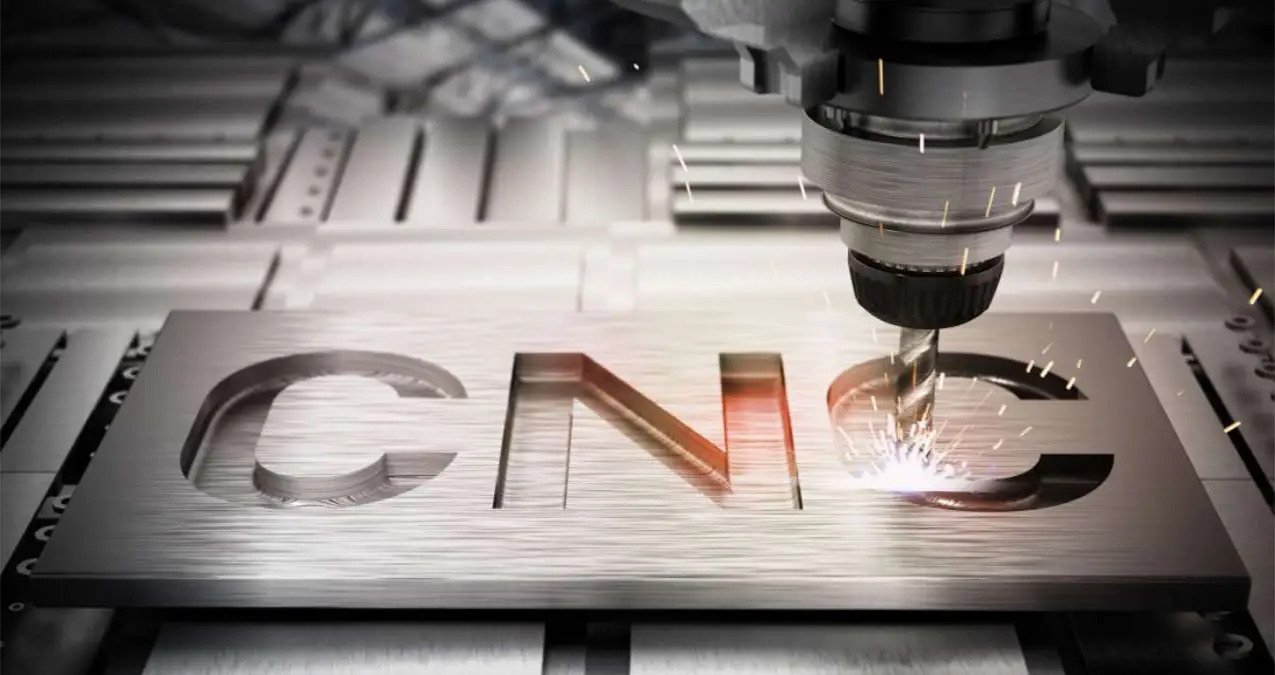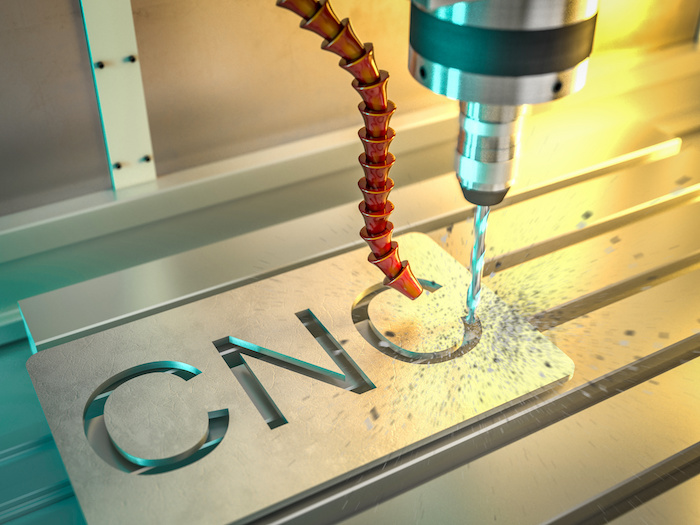cnc turning service FAQs: answers to your most pressing questions
Raise Your Production High Quality With Expert CNC Machining Services in Milling and Transforming
CNC machining solutions in milling and turning offer substantial benefits for making operations. These processes guarantee precision and performance, important for producing top quality parts. With sophisticated technology and competent machinists, services can accomplish premium finishes and detailed designs. Recognizing the nuances of these services is important for maximizing their advantages. What aspects should business consider when selecting the appropriate CNC machining partner?
Understanding CNC Machining and Its Benefits
Although several producing procedures exist, CNC machining stands out due to its precision and efficiency - jig and fixture tooling. This innovative manufacturing technique uses computer-controlled devices to generate intricate get rid of very little human treatment. By automating the machining process, it significantly lowers the likelihood of human mistake, making certain regular top quality across production runs
CNC machining uses numerous benefits that interest various markets. To begin with, it fits intricate designs that traditional approaches might battle to accomplish. Moreover, the rate of manufacturing is improved, allowing for quicker turn-around times and enhanced result. Furthermore, CNC machining is flexible, appropriate for a vast array of products, including composites, metals, and plastics.
The process permits for easy modifications, making it possible for rapid prototyping and modification without comprehensive retooling. Because of this, services can react quickly to market needs, making CNC machining an important component of contemporary manufacturing strategies.

The Value of Precision in Milling Processes
Accuracy is important in milling procedures, as it straight influences the accuracy of the last product. The choice of products additionally plays a considerable duty, affecting exactly how well the machining process meets defined resistance criteria. Comprehending these aspects is important for achieving optimal lead to CNC machining.
Function of Accuracy
Achieving high levels of accuracy is essential in crushing processes, as even the smallest deviation can result in substantial errors in the end product. Precision in CNC machining directly affects the efficiency, capability, and long life of the made parts. Precise grating assurances that dimensions and resistances are fulfilled, which is crucial for parts that need to fit with each other perfectly in setting up or run under certain conditions. In addition, the role of precision reaches decreasing waste and remodel, therefore boosting total manufacturing effectiveness. Advanced CNC machines furnished with sophisticated software program and tooling add to obtaining the essential accuracy. By focusing on precision in milling, makers can guarantee top quality results that satisfy stringent market criteria and customer assumptions.

Material Selection Effect
Product option plays an important role in the milling process, influencing both the quality of the end product and the performance of production. Various materials display one-of-a-kind properties such as hardness, tensile stamina, and machinability, which directly impact the milling method utilized. For instance, tougher materials might require specific devices and slower feed prices to avoid tool wear and preserve precision. On the other hand, softer materials can be milled at greater rates however may do not have resilience. Additionally, the choice of product can influence surface coating and dimensional accuracy, demanding careful consideration by makers. Ultimately, selecting the ideal product not only enhances item efficiency but likewise enhances the milling process, minimizing waste and boosting general productivity.
Tolerance Requirements Value
While the choice of products is crucial, adherence to tolerance standards is equally vital in CNC machining procedures. Resistance requirements dictate the permitted restrictions of variant in measurements, ensuring elements fit and function appropriately. In milling and transforming operations, precise resistances enhance item quality, decrease waste, and minimize rework. When tolerances are accurately preserved, suppliers can attain constant outcomes, which is essential for industries such as aerospace, vehicle, and clinical gadgets, where precision is extremely important. Deviations from developed requirements can cause setting up concerns, endangered performance, and enhanced costs. Subsequently, understanding and executing appropriate resistance criteria is essential for any type of CNC machining service seeking to keep high manufacturing high quality and satisfy client requirements effectively.
Enhancing Efficiency Through Advanced CNC Transforming
Advanced CNC transforming methods considerably improve efficiency in component creation by making sure high precision in manufacturing. This raised precision not only enhances the total quality of the components created however additionally contributes to lowered production time. Consequently, producers can attain higher output while keeping strict top quality standards.
Accuracy in Part Production
CNC turning technology has actually transformed precision in element development, enabling producers to attain remarkable accuracy and effectiveness. Utilizing computer-controlled lathes, this advanced process thoroughly forms materials into elaborate layouts, making certain tight tolerances that satisfy requiring requirements. The automation integral in CNC transforming reduces human error, causing continually high-quality components tailored to details requirements. Furthermore, the capability to rapidly customize electronic layouts enables rapid models, boosting the personalization of components without giving up accuracy. Consequently, markets ranging from aerospace to vehicle advantage substantially from these innovations, as they can generate complex geometries with convenience. Ultimately, CNC turning stands as a foundation of contemporary production, driving precision and reliability in part development.
Minimized Manufacturing Time

Secret Technologies in CNC Machining
Numerous essential modern technologies drive the effectiveness and precision of CNC machining, allowing producers to produce complex components with high precision. Central to these advancements are Computer system Helped Style (CAD) and Computer Assisted Production (CAM) software, which improve the design-to-production procedure. CAD permits elaborate layouts to be produced and controlled digitally, while CAM converts these styles right into device guidelines.
Additionally enhancing accuracy are multi-axis machining facilities, which make it possible for cutting devices to relocate along numerous axes simultaneously, minimizing the need for multiple configurations - cnc milling services near me. Furthermore, improvements in tooling products and coverings have actually boosted resilience and performance, enabling better surface area coatings and extended tool life
Automation innovations, including robotics and intelligent software application, facilitate real-time monitoring and modifications during production, the original source making certain consistency and high quality. Collectively, these technologies not only boost production capacities but additionally add to the total reliability of CNC machining solutions.
The Function of Competent Machinists in Quality Manufacturing
Competent machinists play a necessary role in making certain the high quality and precision of CNC machining manufacturing. Their expertise straight affects the result of producing procedures, as they analyze technical drawings, established machines, and choose appropriate devices for each and every task. By having a deep understanding of machining concepts, they can make real-time adjustments to optimize efficiency and maintain tight resistances.
Additionally, competent machinists use their problem-solving capacities to identify and fix problems throughout production, ensuring and protecting against issues that the end products fulfill rigid top quality standards. Their experience with numerous materials and machining strategies allows them to adapt to varied project requirements, improving overall efficiency
On top of that, these experts often work together with designers and developers, giving valuable understandings that add to the constant renovation of manufacturing approaches. Ultimately, the importance of experienced machinists in CNC machining can not be overstated, as they develop the foundation of premium manufacturing operations.
Reducing Waste and Optimizing Resources
Reliable CNC machining not only counts on the expertise of competent machinists however also emphasizes the importance of decreasing waste and enhancing sources throughout the production procedure. By utilizing sophisticated modern technologies and specific programming, suppliers can reduce material waste, guaranteeing that every piece of raw product is used efficiently.
Including approaches such as nesting, where components are organized to make best use of material use, can especially lower scrap manufacturing. Furthermore, real-time surveillance of maker efficiency permits immediate adjustments, avoiding overflow and resource exhaustion.
Carrying out sustainable practices, such as reusing metal shavings and utilizing eco-friendly products, contributes to both cost financial savings and ecological responsibility.
Through these measures, CNC machining solutions can boost efficiency while maintaining top notch standards, inevitably resulting in a more sustainable and lucrative procedure. By prioritizing source optimization, organizations can attain higher performance and a minimized ecological footprint in their production processes.
Picking the Right CNC Machining Solution for Your Requirements
Just how does one establish the very best CNC machining solution for certain task needs? Picking the ideal CNC machining solution involves several critical considerations. Initially, project specs, including material kinds, measurements, and tolerances, should be plainly defined. This guarantees that the picked solution can fulfill the technical needs of the job.
Second, examining the provider's expertise and experience in the pertinent industry can offer insights into their capabilities. Examining previous projects and customer testimonies can additionally educate the decision.
Third, examining the available innovation and equipment is vital, as innovative equipment often leads to higher accuracy and efficiency.
Finally, price and turn-around time need to be considered to ensure the service aligns with budgetary restrictions and deadlines. By meticulously evaluating these aspects, services can recognize the CNC machining service that best fits their distinct manufacturing needs.
Often Asked Questions
What Products Can Be Made Use Of in CNC Machining?
CNC machining can use a variety of materials including metals like titanium, steel, and light weight aluminum, as well as plastics such as acrylic and nylon, and compounds, supplying flexibility for different investigate this site production applications and sectors.
Exactly how Lengthy Does a Normal CNC Machining Task Take?
A regular CNC machining task can take anywhere from a couple of days to a number of weeks, relying on factors such as intricacy, material type, style specifications, and production volume. Timelines differ based upon job needs and urgency.
Are CNC Machining Provider Ecologically Friendly?
CNC machining services can be ecologically pleasant, particularly when making use of sustainable materials and effective processes. Waste reduction and energy-efficient equipment add to a lower environmental influence, making these services a practical choice this post for eco-conscious manufacturing.
What Industries Frequently Make Use Of CNC Machining Providers?
CNC machining services are commonly utilized in various sectors, consisting of vehicle, aerospace, electronic devices, clinical devices, and manufacturing. These fields count on accuracy machining for elements that require high precision, effectiveness, and repeatability in production procedures.
How Can I Prepare My Styles for CNC Machining?
To prepare designs for CNC machining, one should ensure appropriate data formats, enhance measurements for resistance, integrate necessary machining attributes, and think about material residential or commercial properties. In addition, supplying comprehensive documentation can enhance the manufacturing procedure's performance and accuracy.
While the option of products is vital, adherence to resistance criteria is similarly essential in CNC machining procedures. Knowledgeable machinists play a vital function in making certain the high quality and accuracy of CNC machining manufacturing. A regular CNC machining task can take anywhere from a couple of days to numerous weeks, depending on variables such as intricacy, product kind, style requirements, and production quantity. CNC machining solutions can be environmentally pleasant, especially when using effective processes and lasting products. To prepare layouts for CNC machining, one need to guarantee correct file layouts, maximize measurements for resistance, include necessary machining features, and take into consideration material buildings.